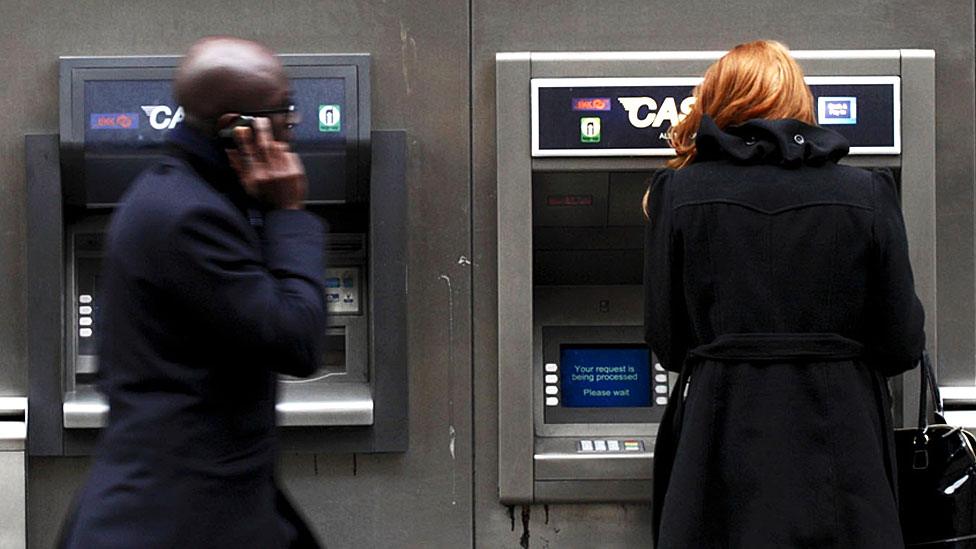Cold comfort in Bank of England's reassurance
- Published
- comments

The headline of Tuesday's Financial Stability Report from the Bank of England sounds comforting.
The UK financial system is strong enough to withstand a "disorderly Brexit".
By that, the Bank means an exit from the EU without a trade deal to replace our current relationship, the introduction of tariff and regulatory barriers and the potential forced relocation of people and businesses from the UK to the EU.
So everything is all right then? Er, not quite.
What the Bank is actually saying is that the economic shock to the system would be no worse than the economic tests it puts banks through anyway.
These economic tests are severe. A 33% fall in house prices, a more than doubling of the unemployment rate, a 25% drop in the pound and a rapid rise in interest rates from 0.5% to 4%. This is a dire economic scenario.
All the Bank is saying is that a disorderly Brexit would be no more apocalyptic than that. That is not much comfort.
Double whammy
The Bank of England also said that if the system was hit by a double whammy - namely if a disorderly Brexit was followed by a major economic downturn in the UK and around the world, the banks would struggle to lend to support the UK economy.
The Bank of England also highlighted big concerns around the insurance market.
Six million UK customers buy long-term insurance products - like life insurance for example - from EU companies.
When the UK leaves the EU, those companies would not be permitted to collect premiums and pay claims unless there is specific legislation to ensure they can.
Thirty million EU citizens who are customers of UK companies would also be vulnerable, so there is considerable incentive for both sides to reach a deal on this, but it will take a lot of detailed work to draft new laws.
The same concerns apply to the financial insurance that banks sell each other to manage the risk of interest rate or currency moves.
There are £26 trillion worth of these contracts between EU and UK banks and they underpin the entire risk management plumbing of the financial system.
Rewriting all of these would be a gargantuan task and could prove beyond the capacity of any new system in the time available, according to the Bank.

Britain will leave the EU on 29 March 2019
Bank of England governor Mark Carney stressed both sides have much to lose but need to get cracking on how to avoid potential threats to the current financial system.
"This system is absolutely integral to the financing of the European Union and it is absolutely in the interests of all parties and very much in the interests of the EU, to maintain the close co-operation we have now," he stressed.
It is important to remember that these visions of financial Armageddon played through by the Bank do not mean they expect any of this to happen. They are the Bank of England's equivalents of war games - simulations of situations that they might have to deal with in the very worst case.
For the first time since they started playing these games in 2014, all of the major banks emerged in one piece and were not required to set aside an additional financial cushion.
That is good news. But what the Bank was not saying is that everyone can relax - and that includes Mr Carney. It's tempting to think that it is a no-brainer that the result of a disorderly Brexit will be less devastating than the dire economic vision in his simulations. Mr Carney himself, however, is not complacent.
"Let's be clear, this is a big call. We will still be here to see what happens in March 2019 in the unlikely event of a disorderly Brexit. We are putting our money where our mouth is."
That's a reference to his leaving date of June 2019. The time between now and then will be some of the most tense and challenging of his career.
- Published28 November 2017
